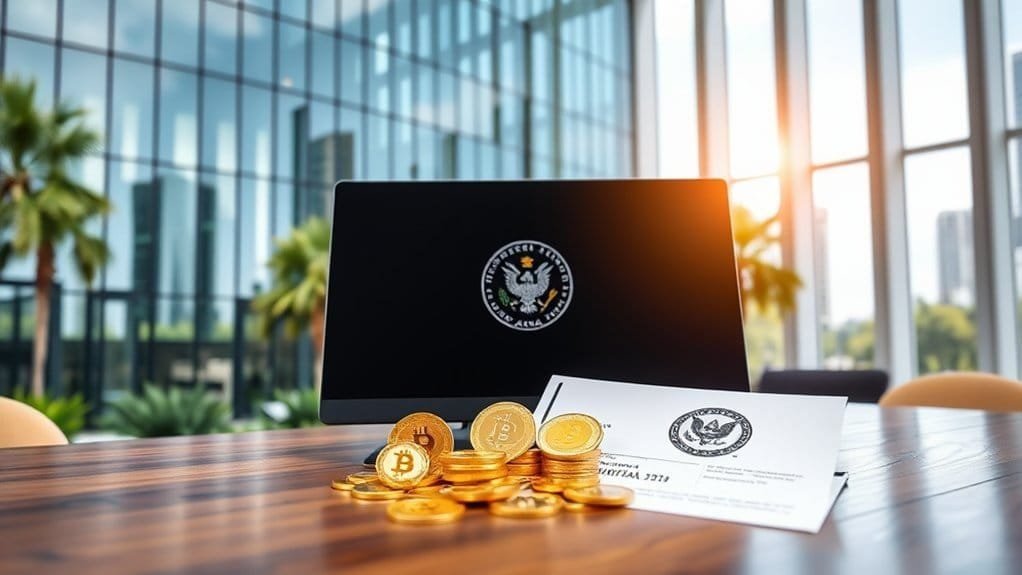Panama City’s not waiting around for politicians—locals can use crypto for taxes, permits, and even parking tickets with Bitcoin, Ethereum, USDC, or Tether. No, the city isn’t swimming in coins; banks handle the crypto-to-dollar swap on the spot, so City Hall still gets good old-fashioned cash. It’s a bold move, throwing Panama onto the map of global crypto hotspots, and it might just nudge lawmakers off the fence. Stick around—there’s more to this disruption.

Panama City just tossed its hat into the crypto ring—officially. The city council gave the green light: residents can now pay taxes, permits, tickets, and more using Bitcoin, Ethereum, and stablecoins like USDC or Tether. Seriously. The mayor even announced it himself, calling it a “historic vote” on social media. He says the city is modernizing public finance.
Panama City goes crypto—residents can now pay taxes, tickets, and fees with Bitcoin, Ethereum, and stablecoins. Modern public finance, unlocked.
Sure, that’s a nice way to put it. But it’s also Panama City catching up to places like Lugano, Colorado, and Vancouver—places already letting people pay local government with crypto.
How’s this going to work? Well, not with magic internet money flying directly into government coffers. Panama still officially uses the US dollar. Local banks will swap crypto for dollars on the spot, making sure the government only ever receives fiat. It’s a neat trick to dodge the whole “crypto isn’t legal tender” headache. The city’s approach follows a trend of increasing recognition of cryptocurrencies in various nations.
No new national laws needed, because the city never technically touches the digital coins. Kind of clever, honestly.
The scope isn’t small, either. Residents can pay for property taxes, business permits, municipal fees, parking tickets, even the bus. Basically, if you owe the city money, now your crypto wallet can take the hit. This is a win for crypto folks tired of converting to cash just to settle up with City Hall. The initiative aims to enhance the local economy and government transactions, bringing tangible benefits beyond technological modernization.]
It also means Panama City gets to flex as a forward-thinking, tech-embracing capital. Take that, skeptics.
There’s still a national crypto bill in the works, stuck in debate and red tape, but Panama City isn’t waiting around. By setting up this crypto-to-fiat system, the city sidesteps legal speedbumps and shows the rest of the country—and maybe the region—what’s possible.
Maybe it’ll even prompt lawmakers to move faster on crypto regulation. Or maybe not. Either way, this scheme places Panama City on the map as a crypto pioneer in Latin America. Residents get more options. The city gets bragging rights. And the world gets to watch.
Frequently Asked Questions
Which Cryptocurrencies Will Be Accepted by Panama City for Payments?
Let’s cut to the chase: which cryptocurrencies make the cut?
Panama City is taking Bitcoin (BTC), Ether (ETH), Circle’s USDC, and Tether’s USDT.
No, your obscure meme coin isn’t on the list—sorry, Dogecoin fans.
The city’s sticking with the big names and a couple of stablecoins. That’s it.
Payments get zapped straight into US dollars anyway, so don’t get too excited about building your crypto empire at city hall.
How Will Crypto Payments Be Processed and Recorded?
Crypto payments? Yeah, they’re not just sitting in a digital wallet somewhere.
Here’s how it works: a resident pays in Bitcoin, Ethereum, or stablecoins. The city’s banking partner grabs that crypto and—bam—instantly swaps it for US dollars.
No holding, no wild crypto price swings. It’s all recorded as a plain old USD transaction, just like any other.
Basically, crypto’s the guest, but dollars still run the party. Bureaucracy, but make it techy.
Are There Limits on the Amount That Can Be Paid in Crypto?
So, are there hard limits on how much crypto you can throw at your tax bill? Nope.
There’s no official cap, no sneaky minimum, nothing. The only “limit” comes from the law: payments have to get zapped into US dollars instantly. That’s it.
You could pay a tiny fee or your whole property tax in Bitcoin, Ethereum, or stablecoins—doesn’t matter. The government just wants their dollars, not your fancy coins.
Will Residents Incur Extra Fees for Using Cryptocurrency?
Are there extra fees for paying with crypto?
Well, the city isn’t charging you more just for picking Bitcoin or Ethereum.
But don’t get too excited—banks and payment processors love their little conversion fees.
Nobody’s spelling out the exact cost, but those fees aren’t a secret handshake.
Residents probably won’t notice a massive hit, but hey, convenience comes with a price.
And don’t forget those lovely blockchain network fees.
It’s never really free, is it?
What Security Measures Are in Place for Crypto Transactions?
Crypto transactions aren’t just tossed into cyberspace with fingers crossed. They’re wrapped in encryption, logged on blockchains nobody can secretly edit, and double-checked by consensus protocols that make fraud a headache.
Wallets? Many need more than one person to access. Extra authentication, firewalls, and hardware wallets keep things secured.
Oh, and there’s unyielding monitoring—just in case someone tries to get sneaky. It’s not Fort Knox, but it’s way tougher than a piggy bank.

